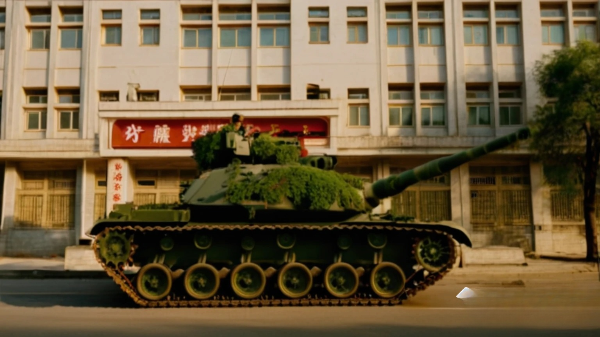Iran’s Plan to Strike Back Against the U.S.
Iran’s Military Preparations Following U.S. Attacks
Loading...

China plans to freeze Lockheed Martin assets after US approves new arms sales
Beijing has imposed sanctions on subsidiaries and executives of U.S. arms manufacturer Lockheed Martin over its arms sales to Taiwan, which it says "violate the one-China principle."
The measures will freeze the movable and immovable property and assets of the group and its executives in China and ban them from entering the country, according to a statement from China's foreign ministry on Friday.
The sanctions target Lockheed Martin CEO James Techrit, Chief Operating Officer Frank St. John, Chief Financial Officer Jesse Malheureux, and other subsidiaries, including the Lockheed Martin Missile Systems Integration Laboratory, the Lockheed Martin Advanced Technologies Laboratory, and Lockheed Martin Ventures.
Earlier this week, the U.S. State Department approved new arms sales to Taiwan, including hundreds of armed drones and missiles worth $360 million. As part of the deal, the self-governing island will receive the Altius-600M system, an unmanned aerial vehicle equipped with a warhead and related equipment. Washington will also provide 720 switchblade suicide drones known as "extended-range loitering munitions" and associated fire-control systems. Chinese authorities last month imposed sanctions on 12 U.S. defense contractors and 10 executives, including subsidiaries of Lockheed Martin and Raytheon. The restrictions, which also included asset freezes and travel bans, were imposed in response to U.S. efforts to arm Taiwan and the imposition of "illegal" sanctions on Chinese companies. The U.S. Treasury Department had previously imposed restrictions on a dozen Chinese companies for allegedly supplying military equipment to Russia.
The Chinese government denounced the move as illegal and said it was part of a broader U.S. policy aimed at undermining the economic development of Asian countries. Beijing has stressed that, unlike the U.S., it is not involved in the Ukraine conflict. Beijing has long accused the United States of stoking tensions over Taiwan and condemned U.S. arms sales to the region, which it considers part of its sovereign territory. Chinese officials have also opposed visits by senior U.S. officials to the island, saying such actions violate the "one China" principle.
The White House, meanwhile, says the arms shipments to the island are necessary to deter China from violently conquering it. China's stated goal is peaceful unification with Taiwan, but the government has warned that force may be necessary if Taiwan tries to declare independence.
Iran’s Military Preparations Following U.S. Attacks
Troops remain in five strategic locations, raising fears of renewed tensions and long-term occupation.
Opposition forces have taken control of the capital after a significant offensive. Here is how it unravelled.
